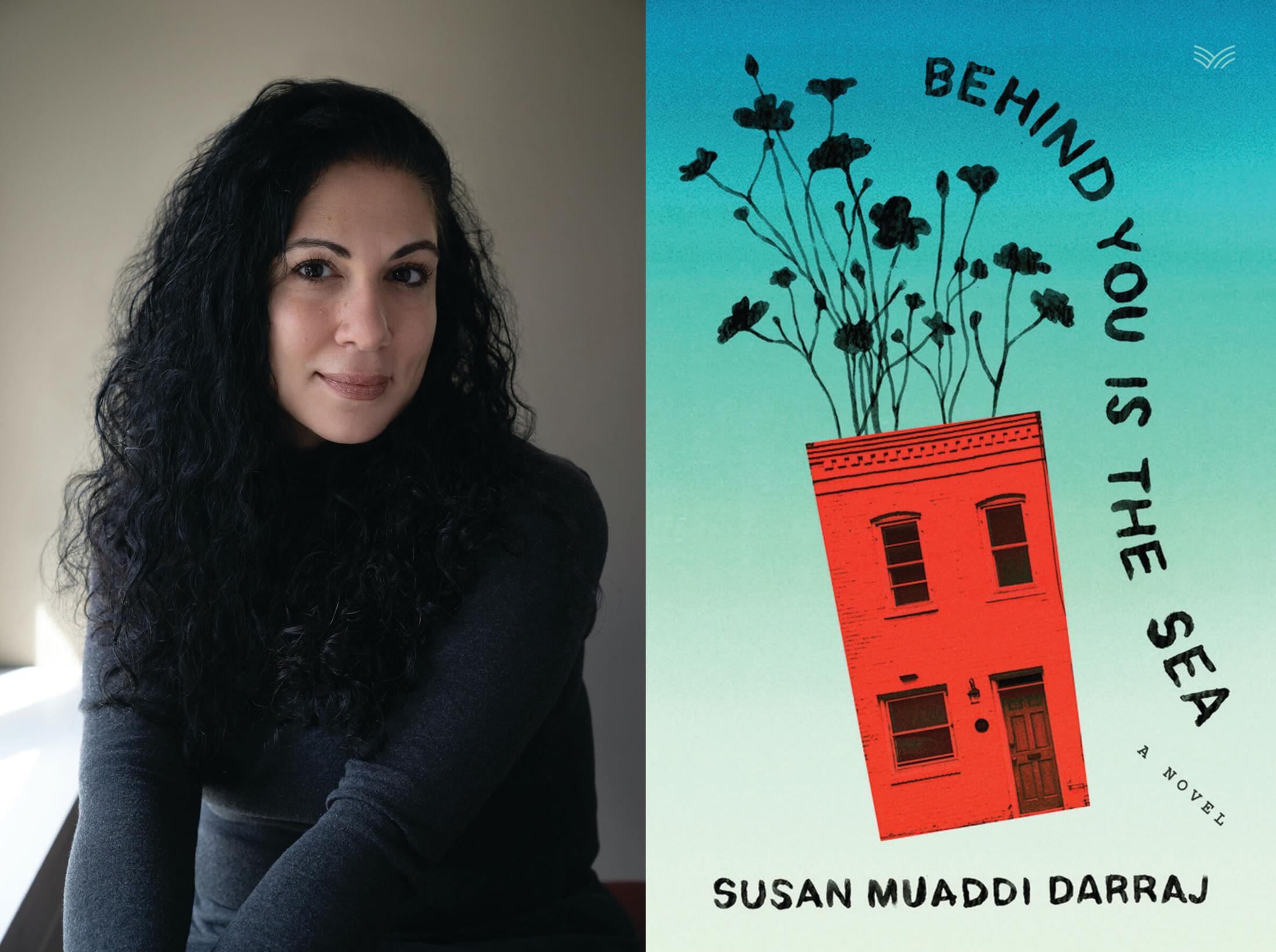Arts & Culture
Susan Muaddi Darraj’s Debut Novel Delves Into the Palestinian Immigrant Experience
Set in Baltimore, 'Behind You Is the Sea' reveals a diverse community of characters that, while sharing universal U.S. immigrant experiences, also defy stereotypes.

Distinguished Baltimore author and English literature professor Susan Muaddi Darraj’s work often reflects her Palestinian roots and her family’s immigration experience. Her first fiction collection, The Inheritance of Exile, published in 2008, knitted stories set in working-class Philadelphia, where she was born. Her second collection, A Curious Land, followed intertwining Palestinian lives from the Ottoman Empire era to the first Intifada, winning a 2016 American Book Award and the Grace Paley Prize. In 2020, she published Farah Rocks, the first children’s book series in North America to feature an Arab-American protagonist.
Her forthcoming debut novel, Behind You Is the Sea, set in Baltimore, brings readers inside the daily lives of three Palestinian immigrant families. Told through the perspectives of an interwoven group of protagonists, each chapter stands on its own as an. engaging, at times funny, at times revelatory and poignant short story. As the book evolves, the elegant pieces form a mosaic, revealing a unique and diverse community that, while sharing universal U.S. immigrant experiences, also defies stereotypes. Behind You Is the Sea should be on fiction readers’ shortlist for 2024.
How are the novel’s characters and stories related to your personal Palestinian-American experience, coming of age in the 1980s and 1990s, and as a woman, mother, and professional?
For me, it’s not that the specific experiences of the characters are my experiences, but the mindsets are definitely ones either I have or I’ve witnessed in my community. I get identified as an Arab-American writer, but I’m more interested in class than anything else. My own father was a mechanic when I was growing up. He still works and has his own garage where he does auto upholstery. In this book, I’m really interested in how class differences that exist overseas, people bring with them, and how America is easier for some people to make it in and others have a harder time.
Why set it in Baltimore?
Every city is economically divided, but I really felt it when I moved to Baltimore. I thought it would be interesting to have these Palestinian characters from different families who are all struggling with class difference, in a city that has these stark class differences.
The first story, “A Child of Air,” reminded me of what a social worker at a local school with many Afghan immigrants has told me about the remarkable strength of the older middle-school girls.
Have you heard this term “eldest daughter syndrome”? It’s like a pop-psychology thing. I myself actually am the eldest daughter. I have three brothers, all younger than me. I’m telling you, in an immigrant family, if you have the bad luck to be born as the eldest child and you’re a girl, you’re screwed. You have to become an adult much faster than other people in the same family because your immigrant parents rely on you for lots of things, for language, for help with paperwork, for translation—and they rely on you to help with your siblings—they’re busy working. You don’t have a chance be a kid.
The book takes its title, we learn, from the quote, “Behind you is the sea, before you, the enemy,” from an invading Islamic general who ordered his ships set afire upon landing in southern Spain.
You don’t have a choice. You have to go forth and you have to win. I took that not as a metaphor for war, but for the kind of battle it is when you immigrate to this country. You’re struggling financially; you’re struggling to pass your culture to your children, so it doesn’t get lost. You’re constantly worried about that. Every immigrant community knows the first thing you lose when you come to this country is your language. Your grand- children will not speak your language, and if they do speak it, it’s because you have gone through herculean efforts to pass it on to them.
Sprinkled throughout, however, are several mentions of Palestinian dishes.
The last thing you’ll lose is your food and your cuisine. The recipes will stay in the family, but the language will go. There’s a lot of mourning in that [loss of connection and culture].
Relatedly, some of the most profound tensions in the novel are generational.
There are definitely generational differences, and very specific to Palestinians who left Palestine in the 1960s. They were leaving a place where there was nothing for them to go back to. The Israeli occupation was complete. My parents came in ’67. That’s where the idea of “behind you is the sea” came from. There’s nothing but what is in front of you. You have to survive here. You have to make it in this country because there’s no going back.